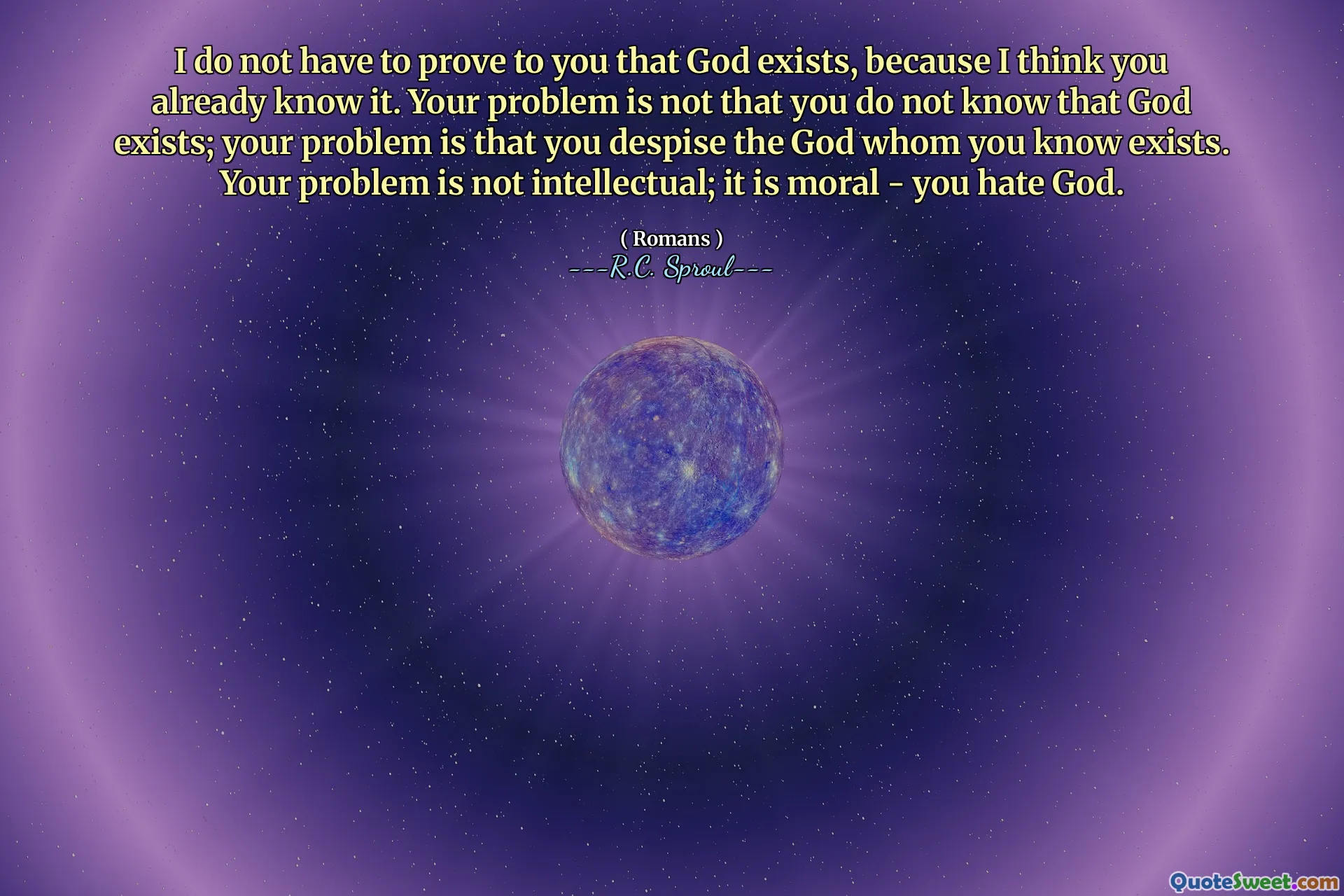
I do not have to prove to you that God exists, because I think you already know it. Your problem is not that you do not know that God exists; your problem is that you despise the God whom you know exists. Your problem is not intellectual; it is moral - you hate God.
This quote, attributed to R.C. Sproul in the context of the book of Romans, presents a profound insight into the nature of belief and unbelief. It suggests that the question of God's existence transcends mere intellectual debate, assuming that the knowledge of God’s existence is already present within each person. Instead, the challenge lies deeper, rooted in one's moral disposition towards God. The notion that the issue is not ignorance but hatred points to a complex interplay between knowledge, emotions, and ethical attitudes. It obliges us to reflect on how individuals relate to the divine—not just as a question of understanding but of the heart and character. This passage invites us to examine our own attitudes toward God, recognizing that acknowledgment without genuine regard may hide a form of rejection more profound than explicit disbelief. Furthermore, it confronts the prevailing assumption that intellectual doubt stands at the center of faith struggles, redirecting it to moral resistance. In a broader sense, this quote highlights an essential theme in theology: that faith is inseparable from one's moral and spiritual posture, reminding believers and skeptics alike to look beyond superficial disputes into the core of human motivations and conflicts with God. Such introspective consideration can lead to more honest conversations about belief, rebellion, and the nature of divine-human relationships.







